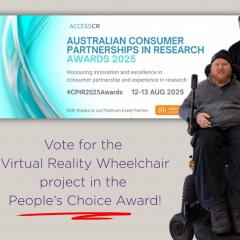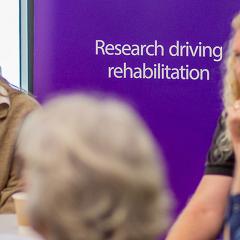Until recently, little has been known about how Speech Language Pathologists (SLPs) think about incorporating telepractice methods into their clinical service delivery.
To bridge this knowledge gap, Rachelle Pitt, a PhD student supervised by Professor Deborah Theodoros and colleagues, conducted a qualitative research study designed to tease out SLPs experiences in delivering an online therapy for aphasia patients (TeleGAIN). In-depth interviews were conducted with SLPs to find out what they thought about the online therapy itself, as well as their views on how they could see the intervention being implemented into their own clinical practice.
Analysis of the SLP interviews found that the TeleGAIN intervention itself was well received and that previously cited barriers to telepractice, including technology issues, were able to be overcome. In addition the SLPs perceived a number of benefits of TeleGAIN for persons with aphasia (PWA) including the ability to meet other PWAs from across Australia and being able to practice communication in a safe and supportive environment.
TeleGAIN (Telerehabilitation Group Aphasia Intervention and Networking) is a 12-week aphasia group intervention designed to be delivered by a SLP to groups of between 3-4 PWA. The SLP primarily acts as a facilitator to communication interaction, by providing engagement, topic information and communication strategies to support PWAs to engage with the program modules.
You can read more about the study design and the TeleGAIN online aphasia therapy here.
Reference
Pitt, R., Hill, A.J., Theodoros, D., & Russell, T. (2018). “I definitely think it’s a feasible and worthwhile option”: Perspectives of speech language pathologists providing online aphasia group therapy. Aphasiology



